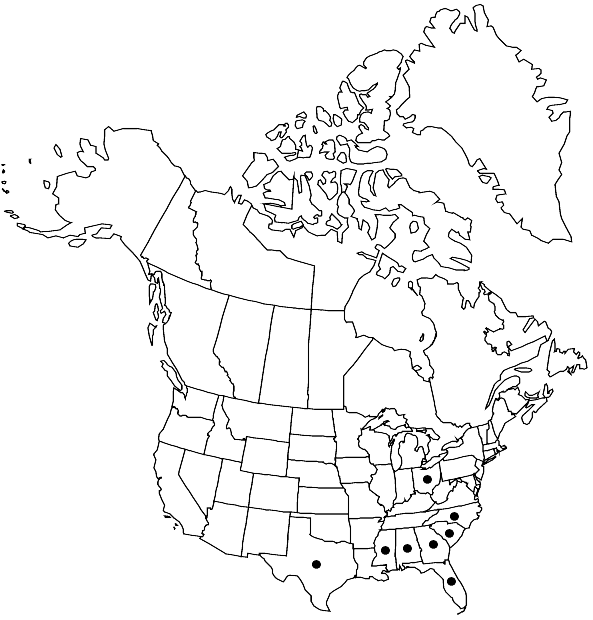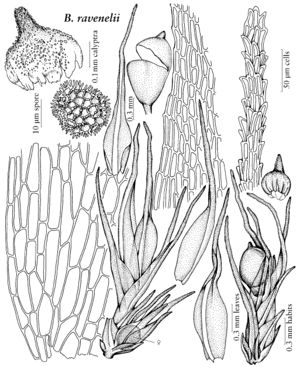Difference between revisions of "Bruchia ravenelii"
in A. Gray, Manual ed. 2, 617. 1856,.
FNA>Volume Importer |
imported>Volume Importer |
||
| (5 intermediate revisions by 2 users not shown) | |||
| Line 1: | Line 1: | ||
{{Treatment/ID | {{Treatment/ID | ||
|accepted_name=Bruchia ravenelii | |accepted_name=Bruchia ravenelii | ||
| − | |accepted_authority=Wilson ex Sullivant | + | |accepted_authority=Wilson ex Sullivant |
|publications={{Treatment/Publication | |publications={{Treatment/Publication | ||
|title=in A. Gray, Manual ed. | |title=in A. Gray, Manual ed. | ||
| Line 31: | Line 31: | ||
-->{{#Taxon: | -->{{#Taxon: | ||
name=Bruchia ravenelii | name=Bruchia ravenelii | ||
| − | + | |authority=Wilson ex Sullivant | |
| − | |authority=Wilson ex Sullivant | ||
|rank=species | |rank=species | ||
|parent rank=genus | |parent rank=genus | ||
| Line 46: | Line 45: | ||
|publication year= | |publication year= | ||
|special status= | |special status= | ||
| − | |source xml=https:// | + | |source xml=https://bitbucket.org/aafc-mbb/fna-data-curation/src/2e0870ddd59836b60bcf96646a41e87ea5a5943a/coarse_grained_fna_xml/V27/V27_624.xml |
|genus=Bruchia | |genus=Bruchia | ||
|species=Bruchia ravenelii | |species=Bruchia ravenelii | ||
Latest revision as of 21:27, 5 November 2020
Distal leaves long-subulate beyond an elliptic, ovate or obovate base, 1.2–2.7 mm, leaf base usually strongly differentiated in shape; distal laminal cells short- to long-rectangular. Sexual condition autoicous. Seta 0.2–0.5 mm. Capsule neck short, bluntly conic. Spores reticulate. Calyptra strongly papillose.
Phenology: Capsules mature winter.
Habitat: Moist, sandy soil
Elevation: mostly low but occasionally moderate elevations
Distribution

Ala., Fla., Ga., Miss., N.C., Ohio, S.C., Tex.
Discussion
Bruchia ravenelii is one of the most commonly collected species of the genus. The short, conic capsule neck is distinctive.
Selected References
None.
Lower Taxa
None.
